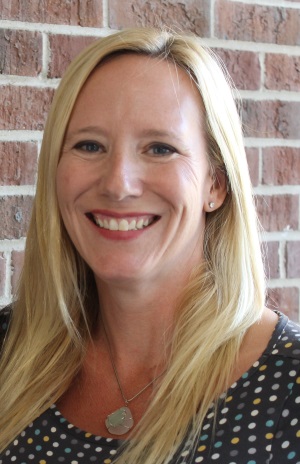Protecting Our Youth: Social Work researcher receives $2.25 million to decrease and prevent violence in Michigan schools

Wayne State University School of Social Work Professor and Doctoral Program Director Poco Kernsmith has received $2.25 million in federal funding from the Center for Disease Control (CDC) Division of Violence Prevention to strengthen violence prevention and response efforts in Michigan schools.
The CDC has funded six researcher teams, including Kernsmith and her colleagues, for a five-year study evaluating the effectiveness of primary prevention programs, policies and practices implemented under their Rape Prevention and Education Program with the goal of strengthening sexual violence prevention efforts. This funding is intended to advance previous sexual violence prevention research and initiatives conducted at the local, state and national levels.
As Principal Investigator on the project "Creating Protective Environments through School Policy Development", Kernsmith will work in partnership with Associate Professor and Ruth T. Koehler Endowed Professor in Children's Services Joanne Smith-Darden of Michigan State University, the Michigan Organization on Adolescent Sexual Health and K-12 schools in Michigan. The research team will evaluate existing school policy to prevent and respond to youth violence and provide technical assistance to K-12 schools across Michigan to inform and improve policy implementation to prevent and respond to physical, sexual, emotional, and electronic violence and harassment among adolescent males and females. This funding will help reduce violence in Michigan schools, address how school administrators, teachers, and youth respond to school violence and threats of violence, implement trauma-informed responses to victims and observers of violence, and reduce exclusionary discipline strategies, such as suspensions and expulsions, through restorative and reintegrative practices.
This research provides an important opportunity to bring the voices of researchers, community and school leaders, and youth together to develop and implement policies and practices that are informed by the best evidence on what works to create protective environments for youth and is responsive to the diverse needs of communities across Michigan. - Poco Kernsmith
Kernsmith has spent nearly two decades working with expert colleagues, school administrators and youth to explore issues surrounding violence prevention, sexual assault and coercion, intimate partner violence, stalking and peer aggression. Kernsmith and Smith-Darden have collaborated on numerous CDC funded grants including the $1 million Supporting Healthy Adolescent Relationships and Environments (SHARE) grant, which explored the etiology of intimate partner violence and identified school connectedness, parental engagement, hopefulness, and community involvement as important protective factors for preventing violent perpetration among youth. The results of the SHARE Study were then used to develop a violence prevention intervention with adolescents in the $1.8 million Youth Empowerment Solutions for Healthy Relationships (YES-HR) grant that evaluates the infusion of a youth-centered, empowerment-based curriculum into social studies courses for middle school students. YES-HR is designed to empower youth to evaluate their school environment and develop community improvement projects to promote safer environments and stronger youth relationships. Additional data collected from the SHARE Study is also being used in an NIH-funded electronic dating abuse project examining the links between physical and electronic dating abuse to understand the trajectories of violent behavior and identify strategies and timing for prevention interventions.
Kernsmith's most recent funding continues to support the School's commitment to quality teaching and research that benefits the community, encourages cultural humility, and advances social, economic and environmental justice. Kernsmith's passion to ensure the healthy development of all youth and the building of healthy relationships to end violence also helps propel the achievement of the Grand Challenges for Social Work, an ambitious multi-platform agenda to eradicate 13 of the most pressing social challenges affecting individuals and communities.
Especially now, it has become obvious how central schools are for providing for, not only the educational needs of youth, but also their social, emotional, and physical health needs. In Social Work, we understand that the individual strengths and needs of each school must be central in developing priorities to create protective environments for youth. This research will evaluate a model of collaborative policy development and implementation that can provide support to our already overburdened school systems. - Poco Kernsmith